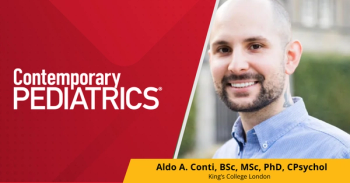
Newer Schizophrenia Drugs May Have Metabolic Side Effects
Second-generation, or atypical, antipsychotic drugs used to treat children and adolescents with early-onset schizophrenia or schizo-affective disorder are not necessarily superior to first-generation drugs, according to an article published online Sept. 15 in the American Journal of Psychiatry.
MONDAY, Sept. 15 (HealthDay News) -- Second-generation, or atypical, antipsychotic drugs used to treat children and adolescents with early-onset schizophrenia or schizo-affective disorder are not necessarily superior to first-generation drugs, according to an article published online Sept. 15 in the American Journal of Psychiatry.
Linmarie Sikich, M.D., of the University of North Carolina at Chapel Hill, and colleagues conducted a study of 119 young people diagnosed with early-onset schizophrenia or schizo-affective disorder who were randomized to treatment with one of two atypical antipsychotics -- olanzapine and risperidone -- or the first-generation antipsychotic molindone.
All three drugs had similar response rates and magnitude of reduction of symptoms, and all three had frequent adverse effects, the researchers report. The two atypical antipsychotics carried a significantly higher risk of weight gain, and olanzapine showed a risk of significant increases in fasting cholesterol, low-density lipoprotein, insulin and liver transaminase, the investigators found. Molindone was more frequently associated with self-reported akathisia, the report indicates.
"These findings have broad public health implications," the authors write. "In the long term, the metabolic side effects of olanzapine and risperidone may place many youth at risk for diabetes and cardiovascular problems. Second-generation antipsychotics are now widely used to treat non-psychotic mood and behavioral disorders in youth. The balance between potential therapeutic benefits and risk of adverse events needs to be carefully considered in this age group."
Copyright © 2008
Newsletter
Access practical, evidence-based guidance to support better care for our youngest patients. Join our email list for the latest clinical updates.






